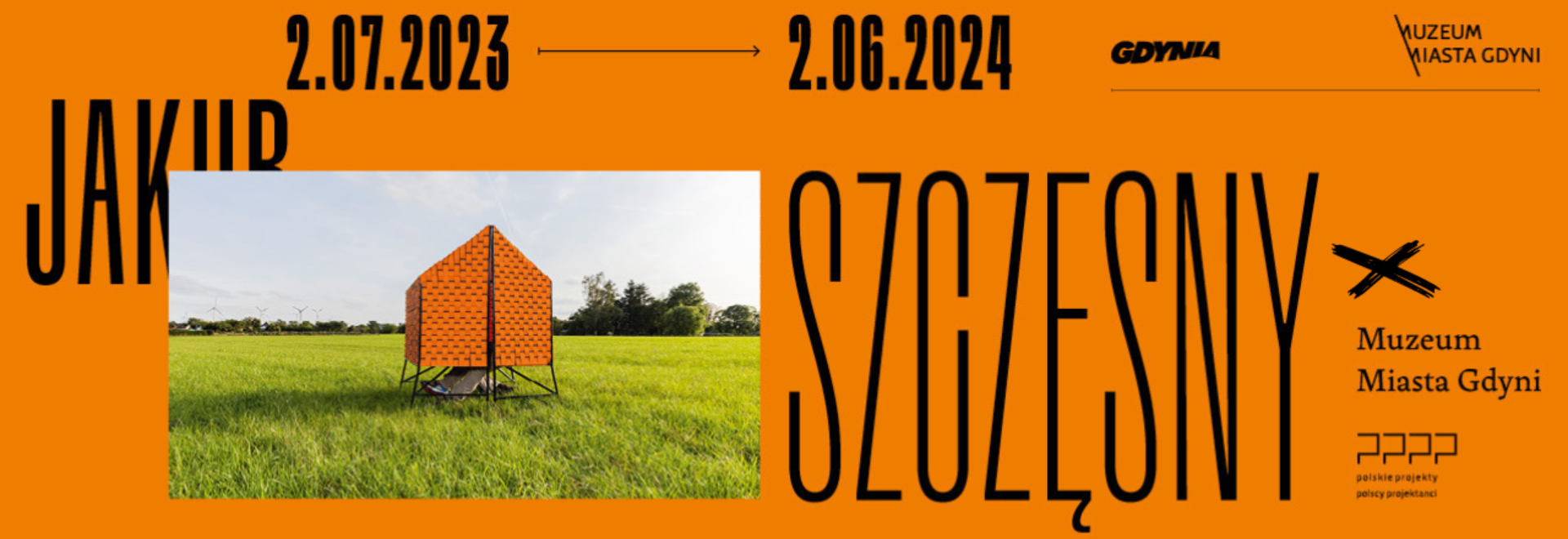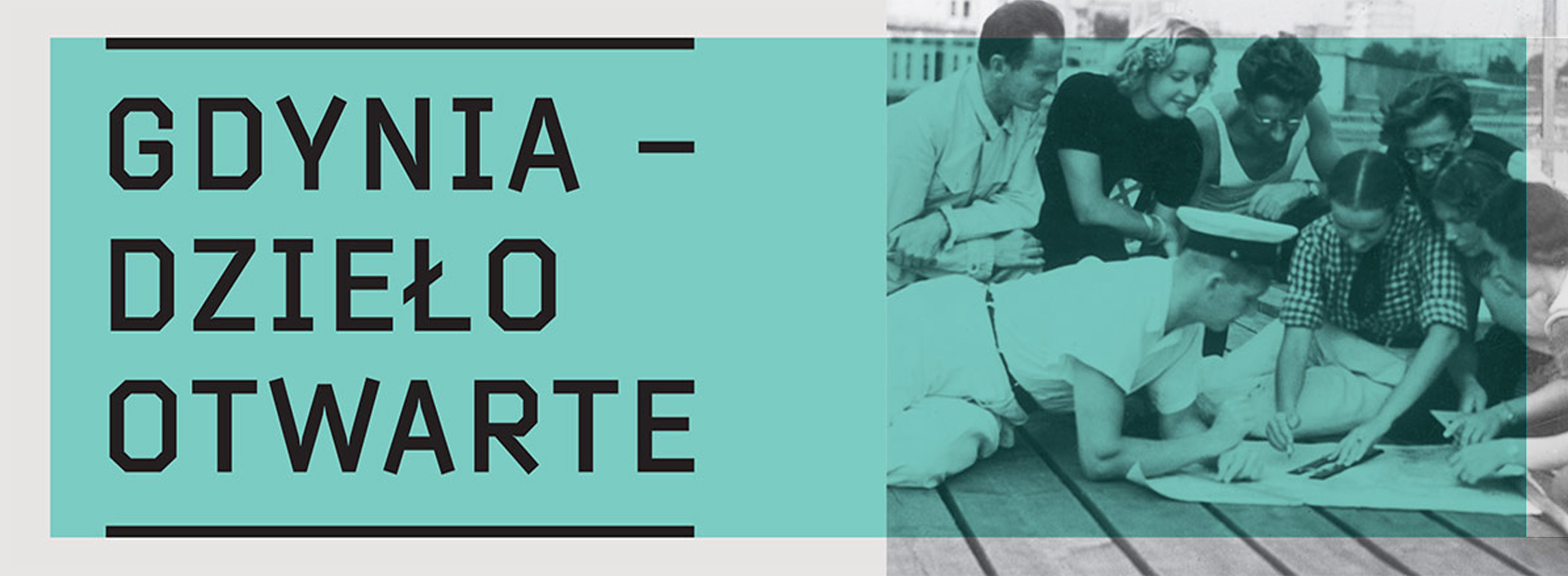History
The new seat of the Gdynia City Museum is a modern bright sandstone building located where the sea and land meet. It was opened by the President of Poland Lech Kaczyński during a ceremony that took place on 16th November 2007. This event ended Gdynia’s long struggle for a suitable place to present its past or a place where generations could exchanges thoughts, experiences and dreams. The idea of setting up a municipal museum in Gdynia was born among the local elite in the 60s of the 20th century. Its activity and determination resulted in the City Public Library setting up the City History Documentation Department which was located in the historic house from the early 20th century in 30 Starowiejska Street, in which a Kashubian activist and a Polish patriot Antoni Abraham lived for several years.
For 14 years, researchers and enthusiasts of the project gathered exhibits: photographs, postcards, documents on social life, posters, plans, maps and works of art, which became the basis of the collection for the Gdynia City Museum which the Mayor founded on 1st January 1983. Its management’s office was located in Starowiejska Street, in the so-called Abraham’s house.
The warehouse and exhibition facilities were located in the former Gdynia’s artists’ exhibition pavilion in 21 Waszyngtona Street, where the Gemini Recreation Center is today. The time when the Museum waited for its new building was spent organizing exhibitions and events, extending the collections and, above all, building lasting, strong relations with the local community. Tens of thousands of objects gathered in the Museum are a source of knowledge about the past and today’s life of the city, which constantly fascinates tourists and makes new generations of its inhabitants proud.
Mission
Gdynia
Gdynia is a unique city in Polish history. It is Poland’s dream of access to the sea come true as well as the most spectacular outcome of Poles’ 20th century modernization efforts. Therefore, it is a city in which modernity and everyday life are intertwined with myths – the myth of the sea, the myth of modernity, the myth of entrepreneurship, the myth of Polishness, the myth of the interwar, the myth of the city. We want to explore the ordinary, everyday history and modernity of the city as well as its mythology, or, more precisely, its various mythologies.
Modernity
Gdynia is modernity’ – modern politics, economics and architecture or modern transport. As a part of its activity, the Museum explores and presents modernity in its diversity – its good and bad aspects or the relevant and obsolete ones as well as the spectacular and the ordinary, which may be barely noticeable.
Designing
Gdynia is a modernist city. Modernism and design are closely intertwined. The modern world is largely a designed world. We are surrounded by completed design projects: buildings, vehicles, objects, prints. Gdynia presents design as an important element of our lives. We want to present the important, interesting, typical, unique famous of forgotten phenomena in Polish and international design.
Education
Just like every city, Gdynia not only lives with present, but also designs the future of the urban community. We understand the importance of education for building a good future and we know that culture has the power to bond communities, so cultural education is one of the most important goals for us. Through education based on modern ideas, we want to not only explain phenomena around us, but also to provide tools for independent interpretation of the world and culture.
Projects
Turn on the museum!
“Turn on the Museum!” is a project which included people with sight and hearing disabilities in various activities of the institution and encouraged them to experience culture creatively.
Baltic mini textile Gdynia
Baltic Mini Textile Gdynia (formerly International Baltic Triennial of Miniature Textile in Gdynia) is the youngest of the four major weaver miniature reviews in Europe. However, it has already developed its own position and meaning. Thus, it can be compared to other prestigious international competitions organized in Szombathely (Hungary), Angers (France) and Como (Italy). In 2016, the 10th jubilee edition of the competition organized since 1993 will take place.
The open district
“Open District” is a project involving educational activities prepared by the Gdynia City Museum conducted outside the facility itself on 5th September 2015. It concerned Chylonia – perhaps the least-discovered district of Gdynia. The history of Chylonia goes back to the fifteenth century. What is more, there are real architectural gems from the turn of the 19th and the 20th century.
Modernism on free license
MODERNISM ON FREE LICENSE is a media and history education program prepared for Gdynia’s students, adults and seniors.
Journey to the interior of the house
is an innovative architectural education program of the Gdynia City Museum addressed to children aged 8-9 and 10-12. It consists of two modules.
Add history
Inaugurated during the Night of Museums 2015, the ADD HISTORY social campaign supported the process of building a new permanent exhibition “Gdynia – open work”, which will open at the Gdynia City Museum at the end of 2016.
Awards
22.05.2017
Exhibition “Glass, metal, detail. Gdynia’s architecture in detail” THE HISTORICAL EVENT OF 2016
We are very pleased to inform you that the exhibition of the Gdynia City Museum, “Glass, metal, detail. The architecture of Gdynia in detail” won the nationwide competition for the Historical Event of the Year organized by the Museum of Polish History. (Photo: Museum of Polish History)
22.05.2016
Honours in the Competition for the Museum Event of the Year 2016 Sybilla
Two of our projects: “Show yourself Senatura!” and the publication “Mr. Modern and colourful life in white Gdynia” prepared by the Gdynia City Museum Education Centre received special mentions in the competition for the Museum Event of the Year Sybilla 2016.

Address
Muzeum Miasta Gdyni
st. Zawiszy Czarnego 1A
81-374 Gdynia
Opening hours
Tuesday, Thursday, Friday: 10 – 16
Wednesday: 10 – 18
Saturday, Sunday: 10 – 17
Tickets
reduced: PLN 7 (per person)
normal: PLN 15 (per person)
family: PLN 40 (maximum two adults and 8 children under 18)
free entry every Tuesday


